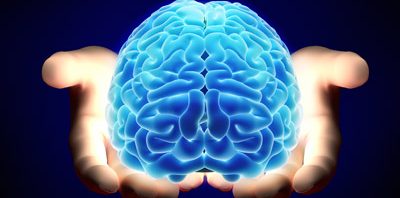The experience I had in my neurochemistry capstone incorporated more of the goals for liberal learning than any other class I have taken at Concordia. Although I am biased, as I have always had a passion for neuroscience and believe that is has so many answers to questions that are raised in today’s society, I do not doubt that my classmates would similarly agree.
Each week of class we were given a scientific literature review to read and ask questions about. The beginning of the week started with a general discussion about the paper and questions that we had about the paper. As a class, we accumulated a list of topics we did not quite understand in the paper and/or wanted to know more about. At the end of class, we divided this list amongst us so that we would each be responsible for investigating a specific topic for the following class. Then, at the next class, each of us would teach our classmates about the topic we had researched more about. This information helped us to grasp the concepts of the paper far better than we had on the first day. Finally, at the end of the week, the class divided into two large groups to discuss the paper. There were not any rules to the conversation; in fact, we often strayed from the topic of the paper (eventually finding our way back).
The topics that we covered throughout the semester ranged from concussions, to autism, Alzheimer’s disease, to marijuana use, obesity, to alcoholism. The neuroscientific literature that exists in correspondence to these topics is incredible, and immensely important to progressing forward in learning about these issues. Until we learn how the body’s most important organ (again, biased), the brain, is involved in these diseases or addictions, we cannot make advancements towards treatments, or therapies, or prevention strategies that address these national and worldly issues.
The class encouraged me to pull information from so many areas of my liberal arts education as well as my own experiences. I was inspired to use my prior education as well as my new knowledge of the topics to contribute to our fascinating discussions. Actually, this was my last class on Fridays, and I always left class with our discussion still buzzing in my head hours (or sometimes even days) later. I felt that our in-class discussions stimulated within me a sense of responsibility I had to society to address these issues, even if that was simply through spreading the word about the information I had obtained.
In my opinion, neuroscience has so many answers and can contribute to putting society on a path where we are consistently “bettering” ourselves. I view neuroscience as a way to discover treatments for neurological disease and raise community awareness about neurological disorders so that we are more accepting of others, ultimately leading to a more cohesive and tolerant country.
A Reflection of My Neurochemistry Experience

We’re a group of volunteers and starting a new scheme in our community. Your site offered us with helpful information to work on. You have done an impressive job and our whole community will probably be thankful to you.